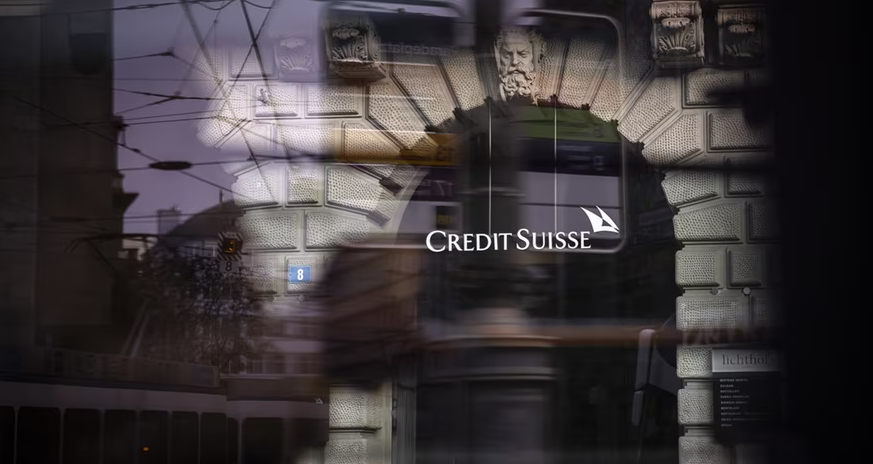Disappointing results leave no more room for accidents as the bank carries out restructuring.
It has been a year since Axel Lehmann took over as chair of accident-prone Credit Suisse and about half that since Ulrich Körner became chief executive. But they have yet to stem the problems at Switzerland’s second-biggest bank, caused by a succession of historic scandals and mismanaged risk – from the blow-up of the Archegos family office to the Greensill supply chain finance affair.
Anyone hoping for uplifting signs in Credit Suisse’s annual results announcement last week will have struggled to discern them. Many of the data points were weak. Six were downright horrible, or at least potentially so.
+ Read more: where did it all go wrong for Credit Suisse?
The first, and most obvious, was the share price response to results that CS bravely positioned as showing “strong progress” that was “in line with guidance”. Investors saw through this, sending the stock plunging 15% on Thursday to less than CHF3 ($3.25) a share – grazing a record low, and down two-thirds in a year. Over 10 years, CS stock has lost close to 90% of its value.
The second horrible number relates to a similar decline in customer confidence. Although CS’s headline performance for the fourth quarter was indeed broadly in line with expectations, some underlying figures were not. At a time when CS has been vocal about its plan to refocus away from investment banking and on to wealth management, it was hardly reassuring to hear that the wealth business had shed CHF93 billion, or 15% of its assets under management, in just three months. CS had previously suggested that asset outflows had stabilised after a panicked exodus of money in October, following social media rumours about the bank’s financial health. Although the pace of outflows did slow after October, the withdrawals continued in November and December, and probably into the new year.
Capital strength
Among the most closely watched statistics for any bank – especially one that is persistently lossmaking – are those relating to capital strength. CS knew that maintaining a strong core equity tier 1 (CET1) capital ratio was crucial for the confidence of equity and debt investors alike. Keeping an investment-grade credit rating is vital for a large global bank, and Standard & Poor’s rates Credit Suisse’s debt just one notch above junk status. Happily, CS beat consensus analyst expectations with a 14.1% CET1 figure, bolstered by November’s CHF4bn capital raising. All the same, the capital ratio – which fell from 14.4% a year earlier – has the potential to be a third nasty number, especially if this year’s forecast losses are not offset by the regulatory capital relief the bank expects in recognition of its derisked operations.
Credit losses, for now, look like a rare data point to cheer in the CS accounts – there was a measly CHF16 million of provisions for the year – but again they disguise some unpleasantness. First, the headline number didn’t include an extra CHF155 million from the Archegos affair (a botched credit exposure that has now cost the bank more than CHF 5billion in aggregate). Even if other historic blow-ups should be minimised by a recent risk review, and core loan exposures in Switzerland are famously low risk, credit losses are only going one way, given the current state of the global economy.
Nasty data point number five is the CHF210 million that CS is paying its former non-executive, turned great-white-hope-for-investment-banking-revival, Michael Klein. In a bizarre turn of events, Klein – a prodigious dealmaker with a roster of relationships with blue-chip corporate clients and big-buck investors – has sold his own boutique to CS. He will now run the revived Credit Suisse First Boston investment bank. The rationale behind the boutique’s CHF175 million valuation (or CHF210 million including projected interest on a CHF100 million convertible note) is unclear. In spite of repeated assurances from CS that conflicts of interest were “managed”, the deal looks awful – a board member has been handed leadership and partial ownership of the group’s investment bank and got a CHF75 million cash windfall into the bargain.
The lossmaking investment bank, by the way, suffered a near-60% decline in revenue in the quarter, including an 84% fall in fixed- income sales and trading and a 96% plunge in equities: even if you’re deliberately de-emphasising your investment bank, that’s a pretty dreadful sixth data point.
Investors had seen these results as a make-or-break quarter for CS. In the event the bank muddled through. But with a mammoth restructuring still ongoing, against a difficult macro backdrop, there is no more room for accidents.
Copyright The Financial Times Limited 2023
More: SWI swissinfo.ch certified by the Journalism Trust Initiative
Full story here Are you the author? Previous post See more for Next postTags: Business,Featured,newsletter

























